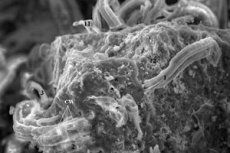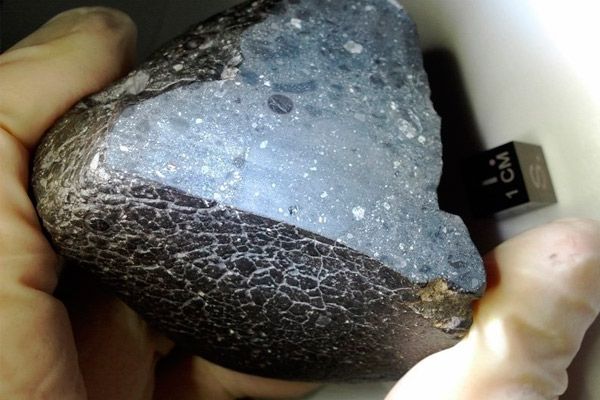New publications
The origin of life on Earth: scientists put forward a new theory
Last reviewed: 02.07.2025

All iLive content is medically reviewed or fact checked to ensure as much factual accuracy as possible.
We have strict sourcing guidelines and only link to reputable media sites, academic research institutions and, whenever possible, medically peer reviewed studies. Note that the numbers in parentheses ([1], [2], etc.) are clickable links to these studies.
If you feel that any of our content is inaccurate, out-of-date, or otherwise questionable, please select it and press Ctrl + Enter.

An international group of Spanish and Italian space researchers have voiced their theory of the origin of life on planet Earth. According to them, life appeared at one time thanks to meteorites.
Scientists have experimentally determined that one type of meteorite – namely carbonaceous chondrites – is capable of producing organic compounds.
"This type of meteorite has never been found before either on our planet or on the surface of other space objects and bodies," the authors of the experiment explained. Such meteorites absorb a certain amount of water, and new molecular structures begin to form in their internal space.
The scientists reported the positive results of their research in the pages of the periodical Scientific Reports.
During a scientific experiment, it was discovered that meteorite bodies contain unique substances that have the ability to simply combine hydrogen, oxygen, nitrogen and individual metals. They can be used as unique catalysts for reactions that form the main components of proteins and RNA. For this reason, scientists concluded that meteorites – carbonaceous chondrites – played a major role in the construction of chemical links – the founders of life on Earth.
Chondrite stony meteorites have much in common in their structure with the gas-dust complexes that created the solar system.
Experts conducted a new study in an equipped laboratory. Similar heated elements were immersed in an arbitrary volume of sterile liquid. After some time, scientists discovered the formation of complex organic bonds. Based on this, a corresponding assumption arose - a theory about the emergence of life, and not only on our planet, but in the Universe in general.
Experts have noted that among the rocks found on the Earth's surface, there are none that have similar catalytic properties.

Chondrite meteorites are considered to be the first solid bodies in the solar system. Their formation originates from a dust subdisk (cloud), that is, even before the time when planet Earth and other planets appeared.
The question of the origin of life on Earth is considered one of the most complex and interesting questions of modern natural science. And there is still no clear and unambiguous answer to this question. It is known that 3.5 billion years ago the stage of chemical evolution ended with the emergence of the first living cellular structures - this is where the biological revolution begins. Researchers from a very wide range of specialties are engaged in studying the phenomena of the origin of life: these are astronomers, professors of aerodynamics, molecular physicists, radiophysicists, geologists, etc. Evaluation of meteors and meteorites provides valuable information about the substances of outer space, and perhaps very soon we will witness the most important scientific discoveries.
